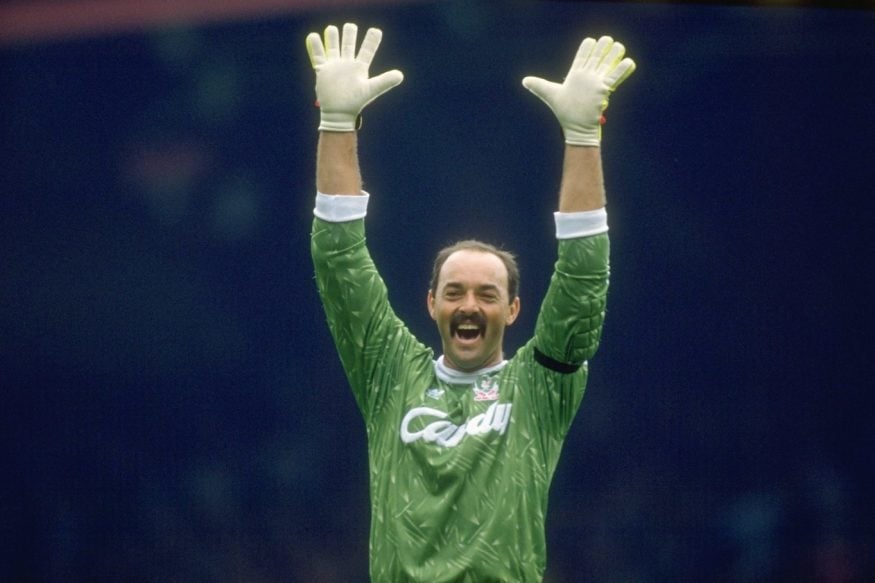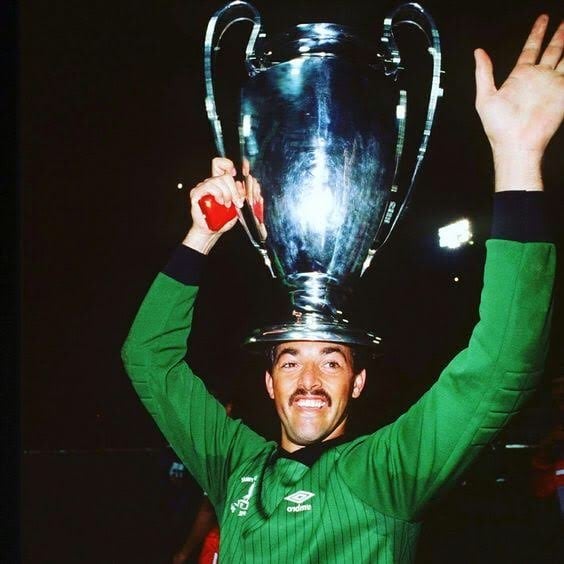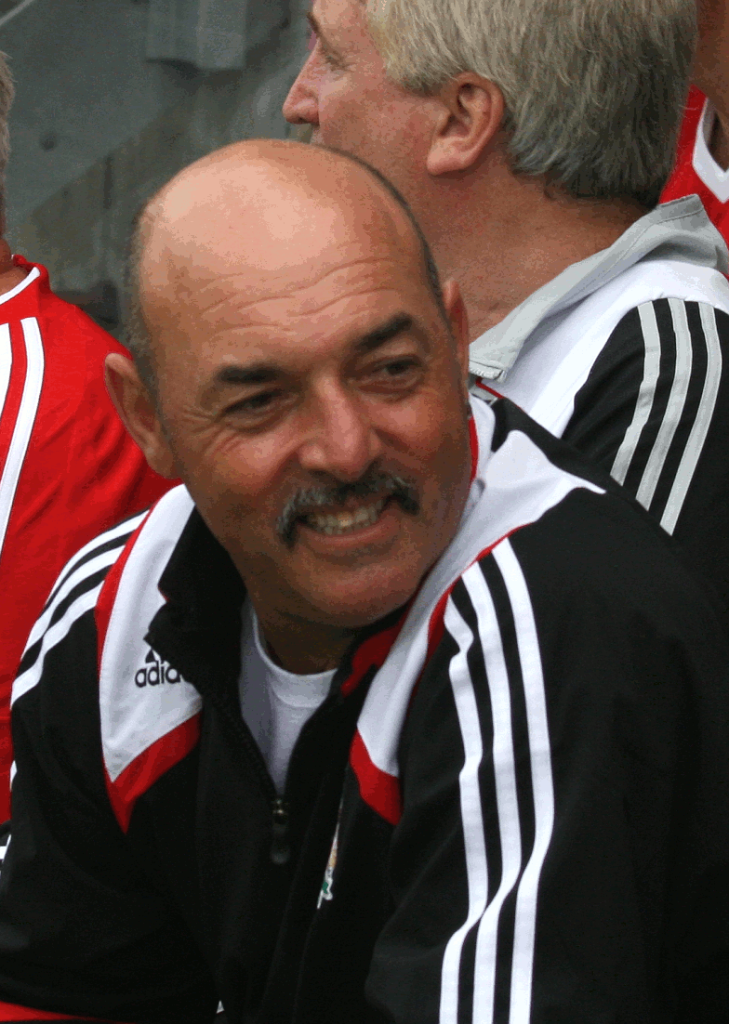Bruce Grobbelaar: The Untold Story of the Match-Fixing Scandal

Bruce Grobbelaar’s Rise to Stardom
Bruce Grobbelaar stands out as a legendary figure in English football history, especially from the vibrant era of the 1980s and 90s. The Zimbabwean goalkeeper famously wore the Liverpool jersey for 13 seasons, clocking an impressive 628 appearances. During his tenure, he played a significant role in Liverpool’s trophy-laden years, contributing to six league titles, three FA Cups, three League Cups, and the European Cup, cementing his place among football’s elite.
Grobbelaar was instantly recognizable for his charismatic persona and inventive goalkeeping antics, particularly during tense penalty shootouts. One of his most memorable moments came during the 1984 European Cup final, where his playful ‘spaghetti legs’ routine on the goal line famously unsettled opponents, inspiring a lasting legacy in penalty-saving psychology.
The Controversy That Shook English Football

Image: Twitter/TheAnfieldWrap
Despite his achievements on the pitch, Grobbelaar’s reputation was tested in 1994 when he was linked to one of football’s most sensational match-fixing scandals.
Origins of the Match-Fixing Accusations
In November 1994, headlines erupted when The Sun published explosive allegations implicating Grobbelaar in a match-fixing scandal during his time at Liverpool. Central to the claims was secret footage, orchestrated by Grobbelaar’s friend and former business associate Chris Vincent, who was facing financial hardship. Vincent, in collaboration with the newspaper, covertly recorded a conversation in which Grobbelaar admitted to losing £125,000 (approximately $152,000) after inadvertently saving a goal in a match that was allegedly intended to be lost.
The Sun’s story referenced a dramatic match against Manchester United, where Liverpool, after trailing 3-0, managed to secure a 3-3 draw-casting Grobbelaar’s actions under suspicion.
Authorities charged Grobbelaar alongside other top-flight players, including Wimbledon’s Hans Segers and Aston Villa’s John Fashanu. The trio were accused of conspiring to fix matches for Heng Suan Lim, a Malaysian businessman representing Southeast Asian betting interests.
Court Proceedings and Legal Drama
When the case went to court in July 1995, Grobbelaar emphatically denied the charges. During the trial, his defense argued that he had fabricated stories of match-fixing to entrap Vincent-hoping Vincent would share the information in a way that could later be exposed to authorities.
Although the secretly recorded tapes appeared incriminating, Grobbelaar’s team called on Bob Wilson, a respected former goalkeeper, to analyze footage from the supposed fixed matches. Wilson testified that Grobbelaar’s performances were of the highest caliber, undermining the suggestion that he had tried to throw games.
Malaysian businessman Lim acknowledged making substantial payments to both Segers and Grobbelaar, asserting these were for general match predictions rather than match outcomes, which, while against FA betting rules, were not illegal under criminal law.
The legal battle endured over multiple years. In both the initial trial and a retrial held three years later, juries remained deadlocked, and all defendants were ultimately acquitted of criminal wrongdoing.
Civil Litigation and Financial Woes
Following his acquittal, Grobbelaar faced separate disciplinary action from the Football Association, which fined him £10,000 for sharing privileged information in violation of betting regulations.
Seeking to repair his reputation, Grobbelaar launched a libel lawsuit against The Sun. Initially, the court awarded him £85,000 in damages after a high-profile 16-day trial in 1999, and the newspaper was ordered to pay his legal costs. However, this victory was short-lived. When The Sun appealed to the House of Lords, the judgment was overturned. The damages were reduced to a symbolic £1, and Grobbelaar was also ordered to cover the newspaper’s substantial legal fees, estimated at around £500,000, ultimately leading to bankruptcy.
The presiding judge condemned Grobbelaar’s actions as inconsistent with the standards expected of professional footballers and warned that behavior like his could undermine the sport’s credibility.
Life After the Scandal

Image: Jarvin/Wikimedia Commons
Once the dust settled, Grobbelaar returned to South Africa to begin his coaching career, working with several local clubs and later the Zimbabwean national team.
His personal life was marked by trials as well; his marriage to Debbie, which spanned from 1983 to 2008, persisted through both his football zenith and his off-field troubles. The couple shares two daughters, Olivia and Tahli.
Grobbelaar has been open about the emotional toll the protracted scandal had on him and his family. In a 2005 interview, he admitted a period of deep personal crisis, even contemplating suicide before ultimately rejecting the notion as a response unbefitting an innocent person.
He later found renewed purpose through charity football matches, appearances on various television shows-including ITV’s Hell’s Kitchen-and as a pundit for major tournaments like the 2010 FIFA World Cup. In more recent years, Grobbelaar has returned to coaching, serving as goalkeeping coach for Zimbabwe’s Matabeleland side and Norway’s Øygarden FK.
Remembering the Man Behind the Headlines
Despite the infamy surrounding the match-fixing saga, Bruce Grobbelaar remains one of Liverpool’s and English football’s iconic goalkeepers. His legendary on-field exploits continue to eclipse much of the controversy, as evidenced in 2006 when he was ranked 17th in Liverpool FC’s “100 Players Who Shook the Kop”-a testament to his talent and enduring appeal among supporters.
Ultimately, Grobbelaar’s legacy is defined not by scandal, but by his unforgettable performances, colorful personality, and lasting impact on football culture.
Lead image: Twitter/LivEchoLFC














